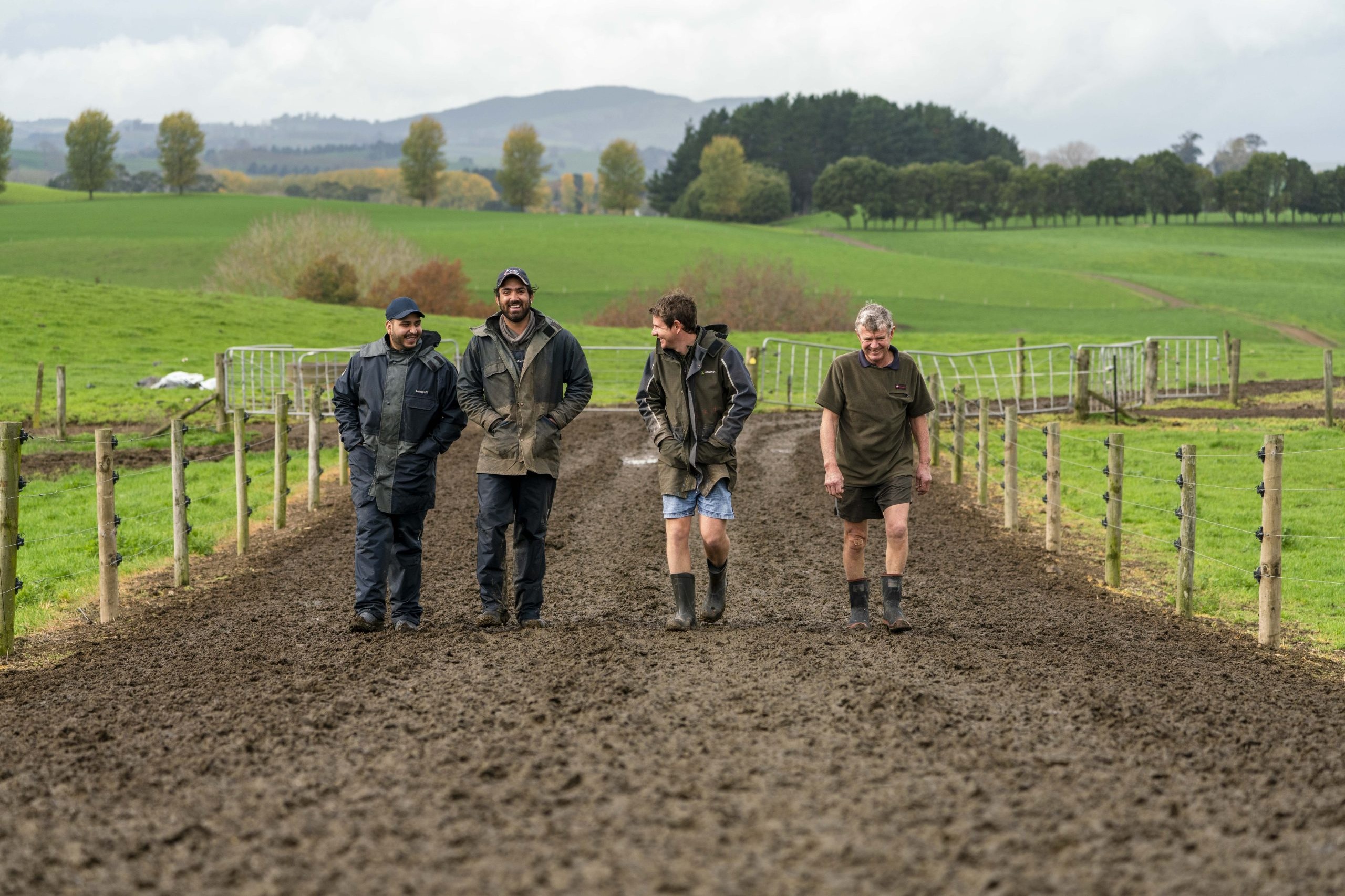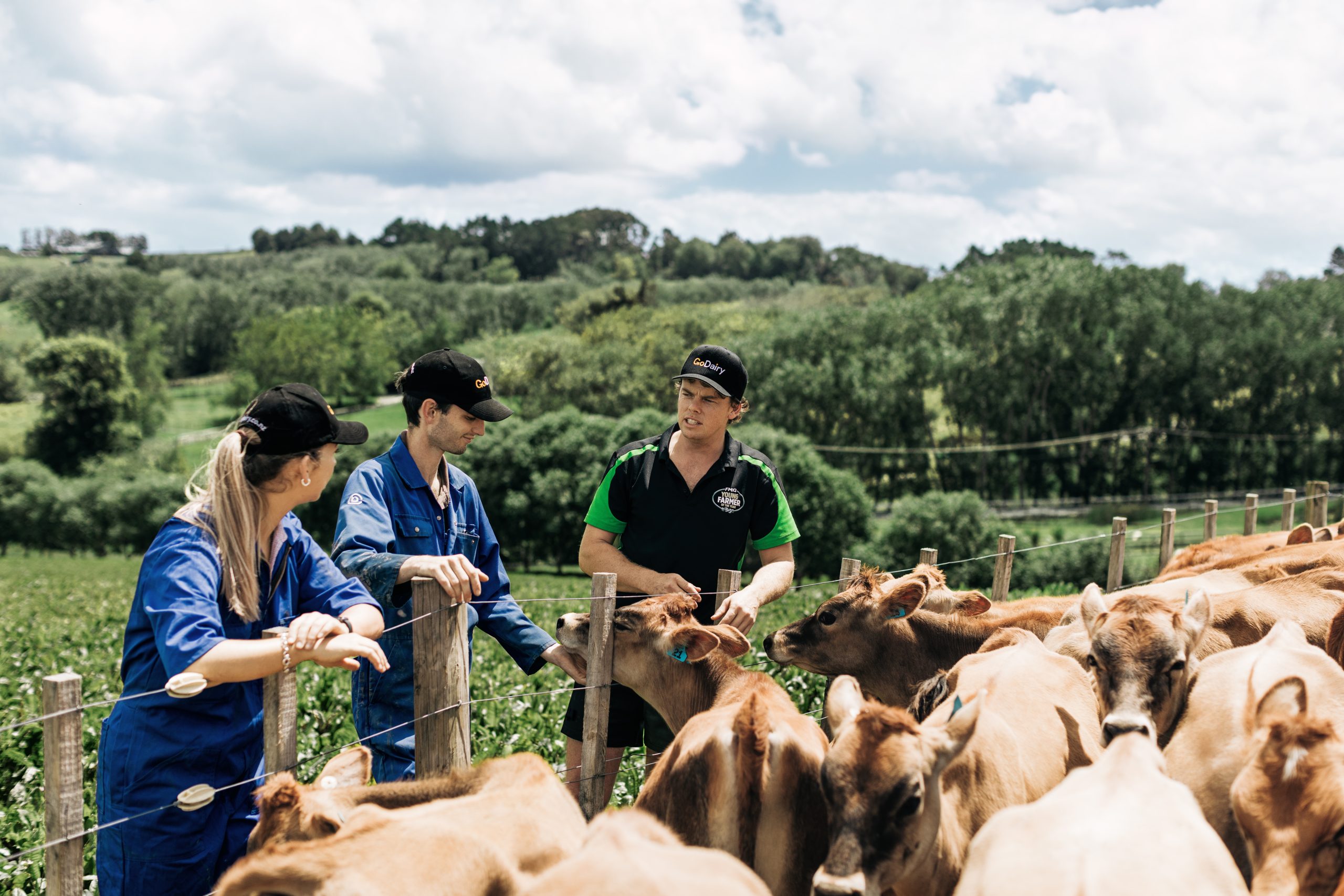Many dairy farming positions come with a house. As farms are usually in isolated rural areas it’s often a necessity – if there is nowhere to live nearby no one can fill the position. But when a house is involved, the relationship between employer and employee changes.
Under the Residential Tenancies Act, farmers become landlords and are just the same as if they are property investors renting out a house in a city.
Even if no rent is paid, accommodation is still being provided so the law must be followed.
This means a legally binding, written tenancy agreement has to be done which sets out the owners’ and the occupiers’ details, the address of the property, the start date of the tenancy and how much rent is to be paid, when and how. The form is on the government’s Tenancy Services website – just google.
Both the farmer and the employee must have a copy of the filled in tenancy agreement.
If a bond is going to be paid, a bond lodgement form must also be done and the bond paid to Tenancy Services within 23 working days.
Bonds are not compulsory and only the equivalent of four weeks’ rent can be charged. It’s to cover any damage or loss to the landlord if the tenant’s obligations are not met, but does not cover wear and tear and may not cover careless damage already covered by the landlord’s insurance.
Under the Residential Tenancies Act, landlords must provide and maintain the accommodation in a reasonable condition, allow the tenant “quiet enjoyment of the premises”, comply with building, health and safety standards that apply and not seize the tenant’s belongings for any reason.
Landlords can only enter the premises if they have the tenant’s consent at the time, or in an emergency (having to wake them up because they are late for morning milking is probably not considered an emergency) or after 24 hours’ notice for repairs and 48 hours’ notice for a property inspection.
There are some other rules, too, like not interfering with the supply of services to the premises which could be problematic on a farm where services are shared between multiple houses, the dairy, trough water and electric fence power units.
Point out any possible problems with services to tenants beforehand so they are forewarned.
One of the other differences between a city flat and staff accommodation on a farm is the definition of premises – where does the land which is part of the staff housing start especially if it is by the tanker track or in a similar open area?
Providing fencing including a gate (whether it is used or not) not only stops this problem but also gives employees an area that they know they must look after, stops the cows accidentally eating the vege garden and helps to keep young children where they should be.
Don’t forget about smoke alarms. Under the Residential Tenancies Act, landlords are also responsible for them. This includes in caravans and sleep-outs.
New smoke alarms, installed after July 1, 2016, must be photoelectric and have a battery life of at least eight years, or be hard-wired.
Older smoke alarms which have not passed their expiry date must be checked at the start of each tenancy and maintained during the tenancy. Tenants are not allowed to remove them or take out the batteries.
There must be at least one smoke alarm three metres or less from all bedroom doors, or there must be one in every bedroom or area where someone sleeps.
If the house is multi-levelled there must be a smoke alarm on every level.
Also, from July 1 this year, all rental premises must have ceiling and underfloor insulation where it is reasonably practicable to install it.
New tenancies agreements from July 1 must include a separately signed insulation statement. In it, landlords must disclose where the insulation in the rental home is, what type and what condition it is in. Again, the form is on the Tenancy Services website.
Make sure you do a property inspection with your new employee before they move in. Take photos, point out any problems with the house and discuss expectations such as curtains must be pulled back during the day and windows opened to allow ventilation. Set out how often you want the lawns mowed.
Also discuss the need for your employee to let you know about any damage as soon as possible.
A damp area appearing on the carpet may mean a leaking pipe somewhere and will need to be fixed before it causes mould and other issues.
Budgets can also be set for redecorating and who does what decided. Employees, especially those with families, often want to make the house feel like a home and a few cans of paint or rolls of wallpaper can make a big difference and change a tired bedroom into a new baby’s nursery.
Once employees have moved in, keep up regular property inspections, just to make sure they’re happy and you are going to stay happy.
Also make sure maintenance, such as the chimney cleaned before winter, or weatherboards replaced when needed, is done.
Well-maintained, comfortable and warm farm accommodation will help attract and keep good employees.
And to make sure farmers do this, there is another act they have to comply with.
The Health and Safety at Work Act states staff housing should be away from stockyards and other similar areas, not have chemicals or machinery stored near them and be proper houses (not a tent or a caravan).
It also specifies that there should be enough bedrooms and the minimum size of those bedrooms.
How much you charge your employee for the accommodation must be, for the IRD, “a fair market rental”. How you figure that out is up to you but it should reflect other rents paid in the area and the size and standard of the staff housing.
If you don’t know what to ask, try getting an estimate from a real estate agent or property manager or have a look at what comparable rental properties on internet sites are going for. Your accountant may also be able to help.
The rental can be part of the salary or wage package and deducted from each payment.
It is often incorporated into the Total Package Value (TPV), or total earnings, that you offer as part of the terms and conditions of employment. It must be clearly written into the employment agreement and the employee must agree in writing to having rent deducted from their wages.
Rent, as part of earnings, can also be included to make sure employees are being paid at least the minimum wage for every hour worked but your accountant will probably advise against doing this.
It’s, what they call, “a grey area” and really, maybe it’s best to pay your staff properly with rent on top of that.
Also make sure you are meeting your obligations as an employer for PAYE and Fringe Benefit Tax as to how you deduct the rent from an employee’s earnings.
With sharemilking or contract milking agreements, any houses on the farm become the infrastructure of the business (just like the dairy and calf-rearing sheds) so the farm owner should not be charging rent.
However, the sharemilker or contract milker can charge their employees rent as they are the landlords.
Many of the legal requirements are shared – farm owners are required to make sure houses meet the requirements under the Tenancy Act and the Health and Safety Act but sharemilkers and contract milkers must complete property inspections, make sure tenancy agreements are filled in and complied with and are responsible for the day-to-day responsibilities including making sure those smoke alarms are working.
Make sure also that sharemilker and contract milking contracts have a clause about who pays what if an employee damages a house. As the farm owner will hold insurance for the building it is often the farm owner who pays, with the sharemilker or contract milker forking out the excess.
However you work it, make sure everyone knows their liabilities beforehand.
With most things, communication is key and it’s the little things that count.
If the lawns aren’t being mowed check your employees in the farm house actually have a lawnmower, and if they can’t afford one, maybe buy one for them yourself.
A load of firewood, or access to a wind-blown tree on the farm to be chopped into firewood, is usually welcomed if the house has a fireplace.
Spend a day when all staff help to clean all the houses’ gutters of leaves or do other routine maintenance so precious days off are not wasted.
Ask employees what they are finding to be problems with the house – if you don’t live there yourself you may have no idea that the washing machine takes forever to fill or that the lights flicker every time a dairy plant motor goes on.
Happy tenants will also be happy employees.





